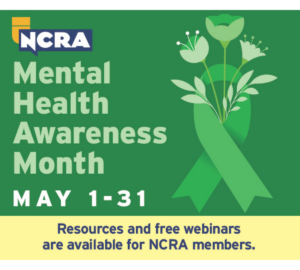
On Jan. 21, earn credit while you learn with NCRA’s latest webinar, “How to Create a Retirement Plan – Income, Investing, and Taxes.”
The live webinar is worth 0.15 CEU and happens Thursday, Jan. 21 from 6:30-8 p.m. Eastern.
Paula Pass, CFP, will discuss how to create a sustainable retirement plan and how to determine the amount of money needed at the start of retirement and each year going forward. Pass is the CEO and president of Arkāgos Advisors + Asset Management, Inc.
“It’s never too late to start investing, never too late to learn financial concepts, and with proper planning, a solid and enjoyable retirement can be had by all,” Pass said.
Objectives for the webinar are for attendees to:
- Determine how much money they will need each year during retirement and if they have enough to safely and comfortably retire;
- Understand when to elect Social Security benefits and how they will be taxed;
- Determine how to safely invest IRA assets so they will last through retirement and be able to identify if / when you could possibly run out of money.
Pass said women should look at retirement planning differently than men.
“Typically, women take time out of the work force to raise children, assist with aging parents, support a spouse or life partner with greater career goals; and over time women typically find that their intrinsic value to earn income falls behind resulting in lifetime losses of savings, retirement account savings, and overall lower accumulated assets for retirement,” Pass said. “Additionally, it is more expensive for women to live, literally about 6 percent more each year in expenses, than our male counterparts; thus resulting in less money to invest. Since women have to be far more diligent with their plans for retirement, a thorough and well-planned financial map is needed to determine how best to access retirement funds, maintain liquidity, project future expenses, and keep tabs on all assets to ensure you will not run out of money late in life.”
Common assumptions people make about retirement planning that are wrong include the overlooked variables of the impact of inflation and taxes, Pass said.
“A second group of expenses that are discounted are the future cost and expense of health care,” Pass said. “People are only looking at money in and money out each month or year and not the overall picture. Additionally, women in particular tend to be savers and not invest as they should which further exacerbates the power of inflation and lowers purchasing power. It’s the investing piece that is critical for women in retirement to keep their money working for them once they have retired.”
Register now for this webinar. The price is $75 member/$99 nonmember.







